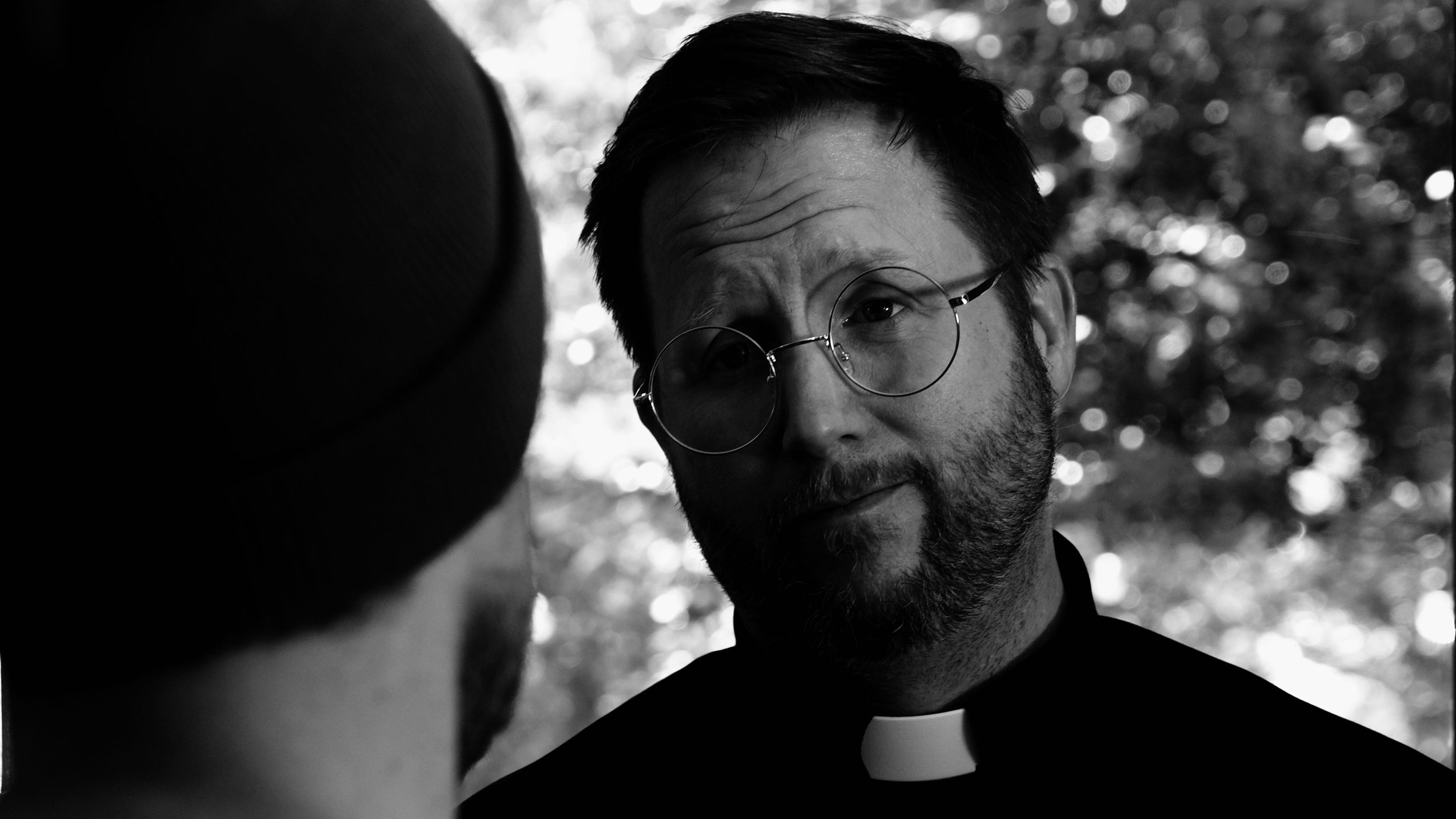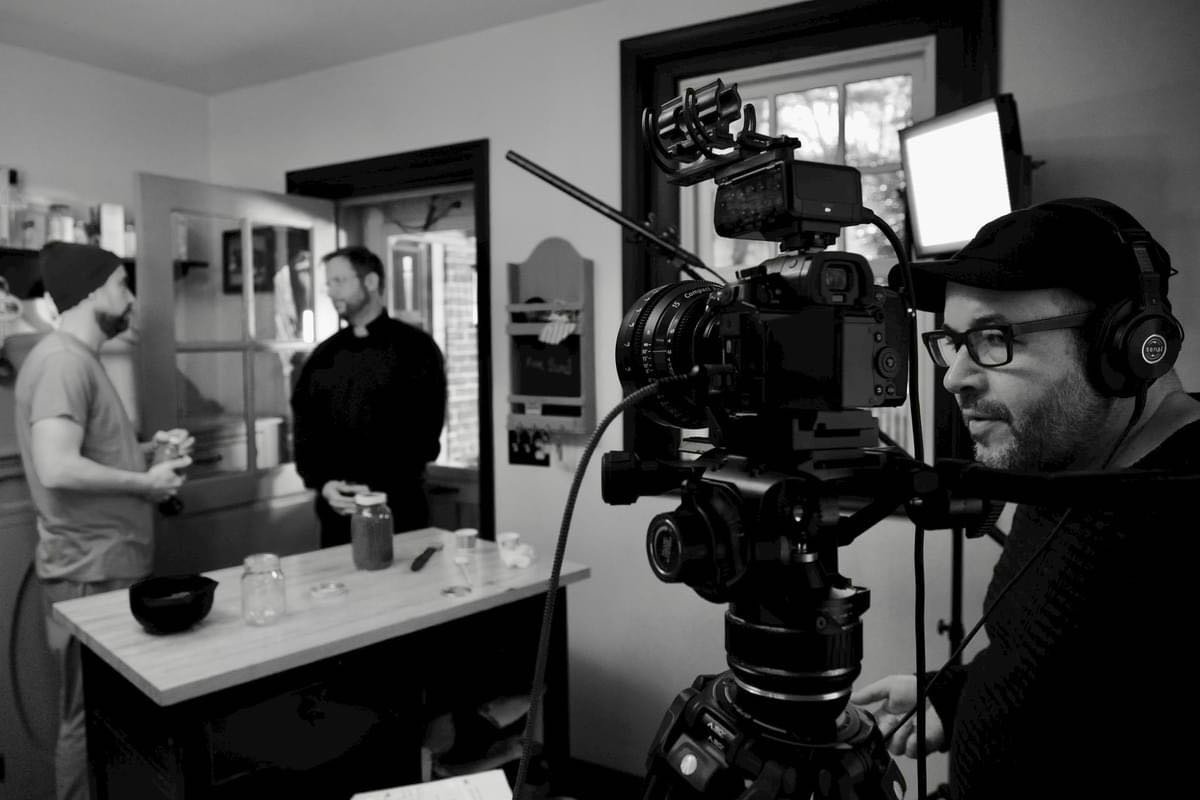VIATICUM (2024)
A spoiler-free review by Kraken Film Reviews
-
Derek Frey
-
David Amadio
Steve Kuzmick
Gil Damon -
USA
-
Derek Frey
-
14 minutes
-
Dark Comedy
"Viaticum" is a dark comedy short film directed by Derek Frey, known for his knack for blending humor with deeper themes. Shot in classic black and white, the film runs for 14 minutes and 10 seconds and takes place in the United States.
The story follows Albert Lewis, a man nearing the end of his life, as his son Jason—who happens to be a die-hard sauce expert—prepares him for his final journey. Things take a wild turn when the local priest, Father Kettinger, arrives to administer the last rites, and Albert drops a bombshell confession: he committed murder in his youth.
This shocking revelation stirs up a heated debate between Father Kettinger and Albert's nurse, Regina, who isn’t exactly on board with the whole forgiveness thing. What follows is a lively clash of opinions on sin, redemption, and, well… the fine line between right and wrong.
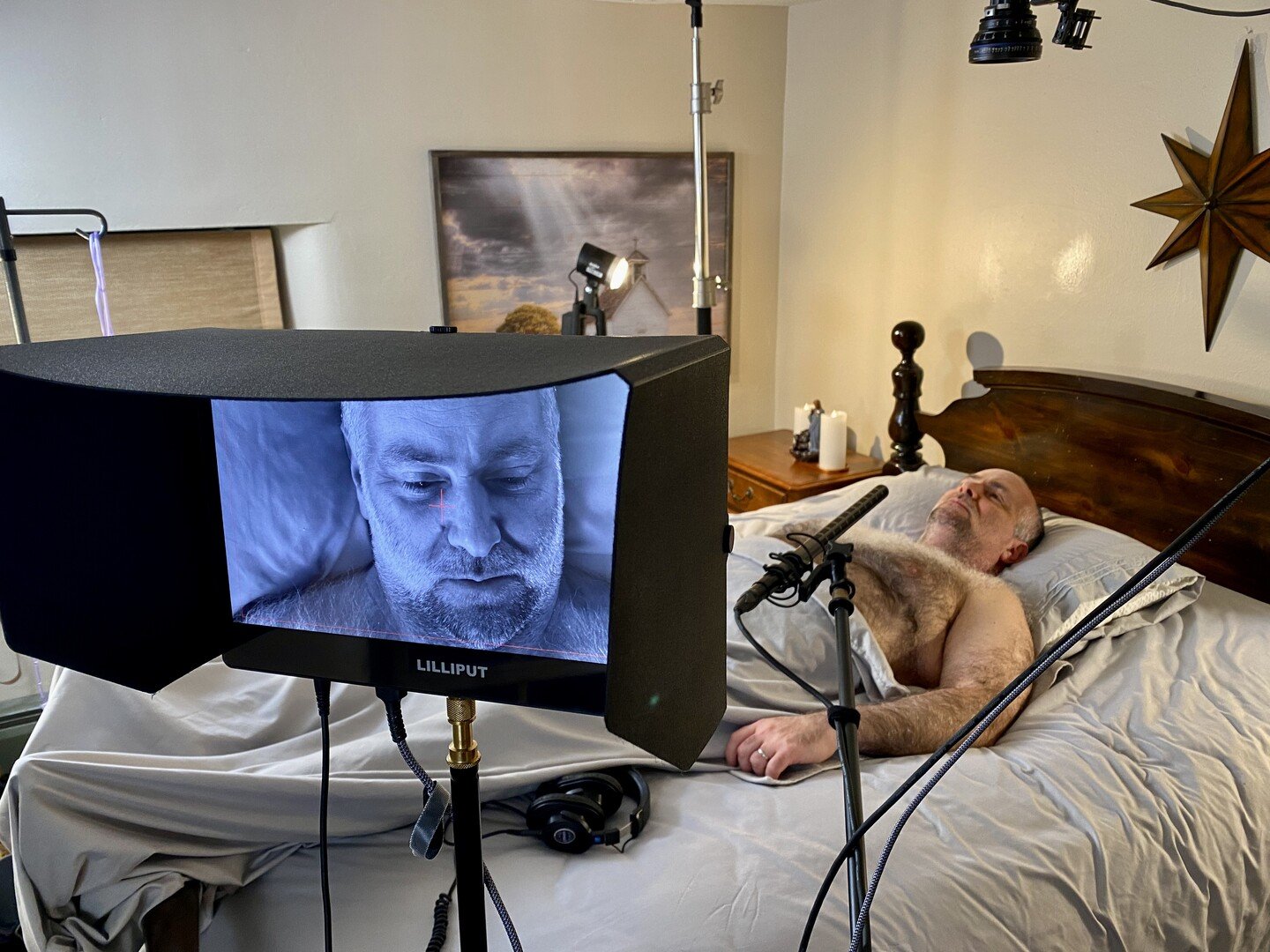
Derek Frey, the mind behind Viaticum, is a passionate and prolific filmmaker with over two decades of experience in the industry. He’s been at the helm of major live-action and animated projects for top studios while also carving out a name for himself in the indie film scene.
From producing Tim Burton hits like Dumbo (2019) and Miss Peregrine’s Home for Peculiar Children (2016) to directing award-winning short films such as Kill The Engine (2017) and Green Lake (2016), Frey’s work spans genres and styles with an impressive blend of creativity and precision.
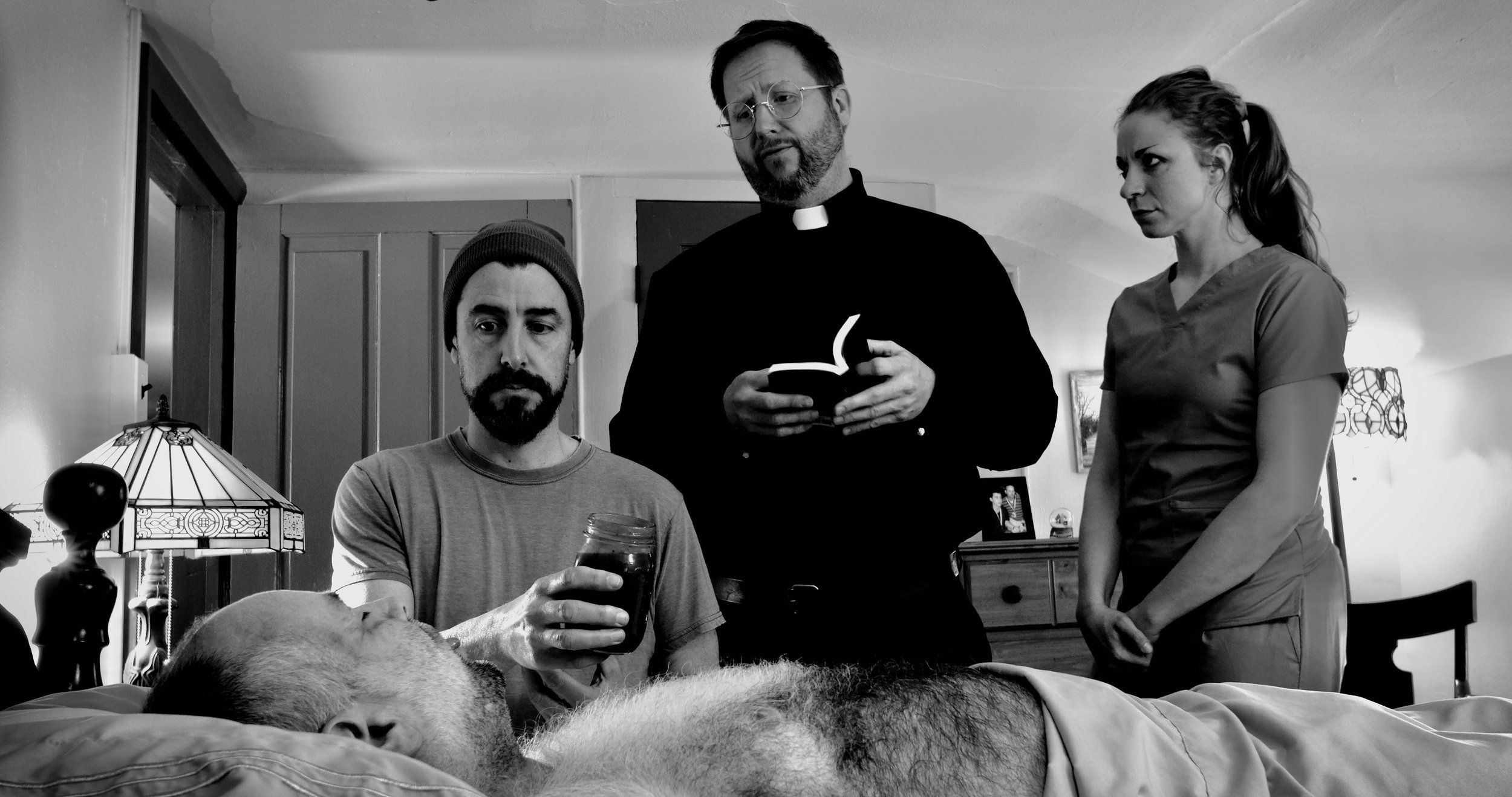
Viaticum can be described as a religious-themed dark comedy, but it never crosses the line between what’s acceptable and what’s not. The humor stays light and enjoyable, making it accessible to a wide range of audiences.
Unlike some religious comedies where you’re never quite sure what to expect, Viaticum keeps things refreshingly straightforward. Its humor is simple yet effective—never dull, never over-the-top—allowing the story to flow smoothly without distractions. The pacing and narrative maintain an easygoing rhythm, striking a perfect balance between wit and warmth.
The short film focuses more on the storyline than on technical aspects, much like many comedy films do. Since the story and pacing are spot on, tiny technical imperfections or occasional slightly rushed edits can be easily forgiven.
These are the kinds of details only the sharpest of film buffs might pick up on. But honestly? The plot pulls you in so much that you won’t even notice, and if you do, they might even add to the short’s charm..
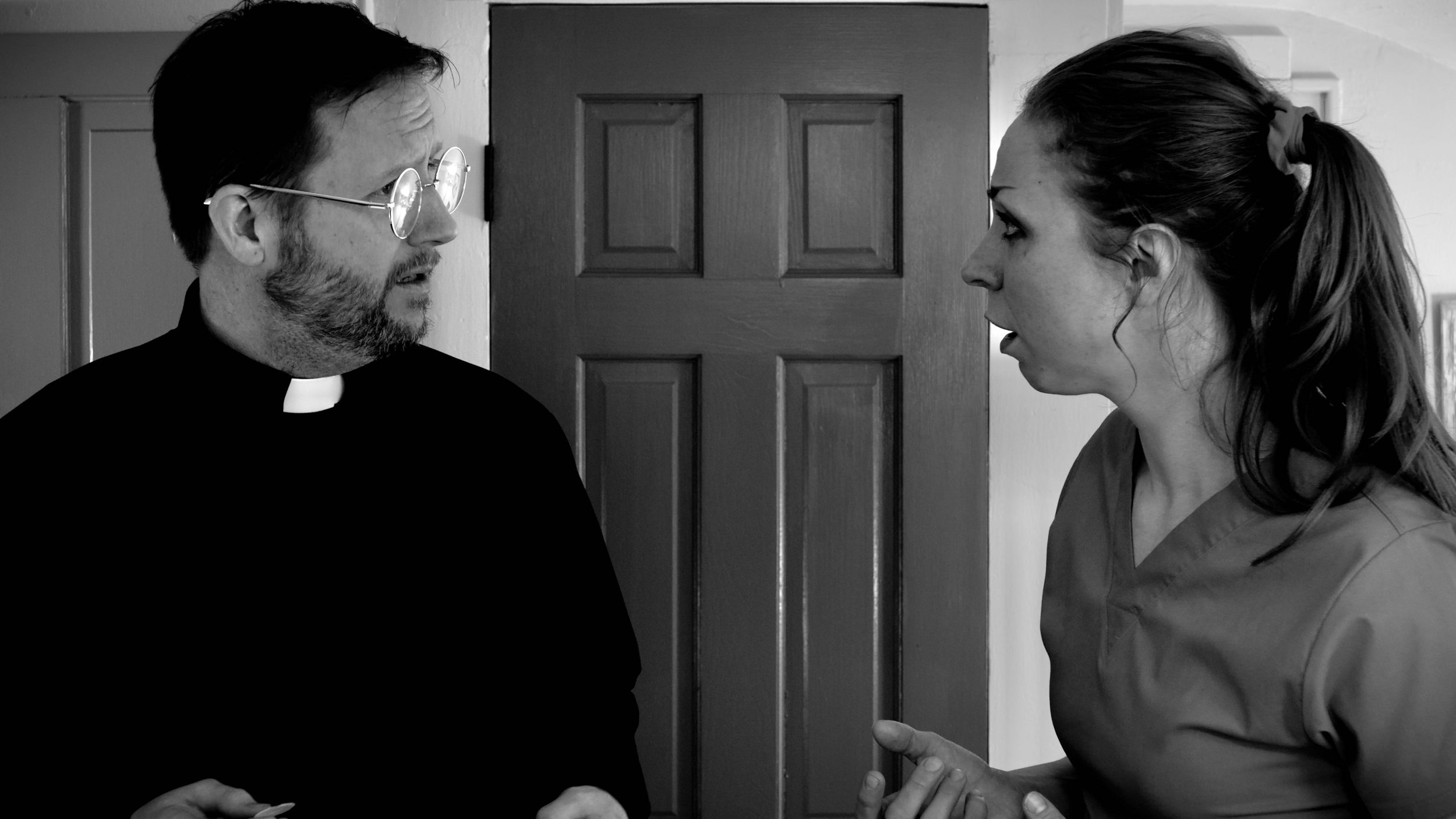
It’s clear that the film had a well-thought-out directorial vision, which becomes evident in key moments—such as the seamless transition between a shot of a small spherical trash bin and a bowl of sauce. These clever visual choices demonstrate the director’s careful planning and attention to detail.
The humor remains subtle and well-executed, while the slightly over-the-top acting helps to enhance the comedic tone, blending it perfectly with the film’s religious themes.
The Challenges of Making a Religious Dark Comedy
Creating a dark comedy with a religious backdrop comes with plenty of challenges—whether it’s making more sensitive viewers uneasy because they’re unsure of what to expect, or pushing the humor too far beyond what’s considered appropriate. However, Viaticum excels at striking the perfect balance, creating a warm, charming, and lighthearted atmosphere that stays "soft" while still delivering laughs.
Then there’s the balancing act of humor and sincerity. A film like this needs to be funny, sure, but it also has to respect the weight of the subject matter. Push too hard on the jokes, and it risks feeling disrespectful; lean too much into the serious elements, and it’s no longer a comedy.
Treading the fine line between reverence and irreverence in a religious dark comedy can be like walking a tightrope in church shoes—one wrong step, and you’re in for some awkward glances.
Religious comedies often fall into the trap of recycling the same tired tropes— like overly strict priests or rebellious believers. So, another challenge of the genre is avoiding clichés. Viaticum, however, steers clear of these pitfalls, with a fresh take that feels relatable without being predictable
Lastly, there’s the challenge of keeping things relatable. Religious humor can sometimes get bogged down in doctrine or inside jokes that only a select group will understand.
Viaticum sidesteps this by focusing on universally relatable themes—family, mortality, and forgiveness—making it accessible to everyone, regardless of their beliefs.
Should we really forgive everyone, even when they're about to check out, no matter what they've done? It’s a question that hits home for everyone, whether you're religious or not. Let’s be real, it’s a dilemma for everyone.
Whether it’s that old grudge you’re holding onto, an awkward feud, or just figuring out if letting go means being the bigger person, forgiveness can sometimes not feel easy.
And that’s what makes Viaticum so much fun—you never quite know what’s going to happen if (or when) you decide to forgive someone. Just like in real life, there's no clear-cut answer. Will they turn over a new leaf? Will they take your kindness and run with it (straight to trouble)? Or is forgiveness really just something you do for yourself, to finally move on and breathe easier?
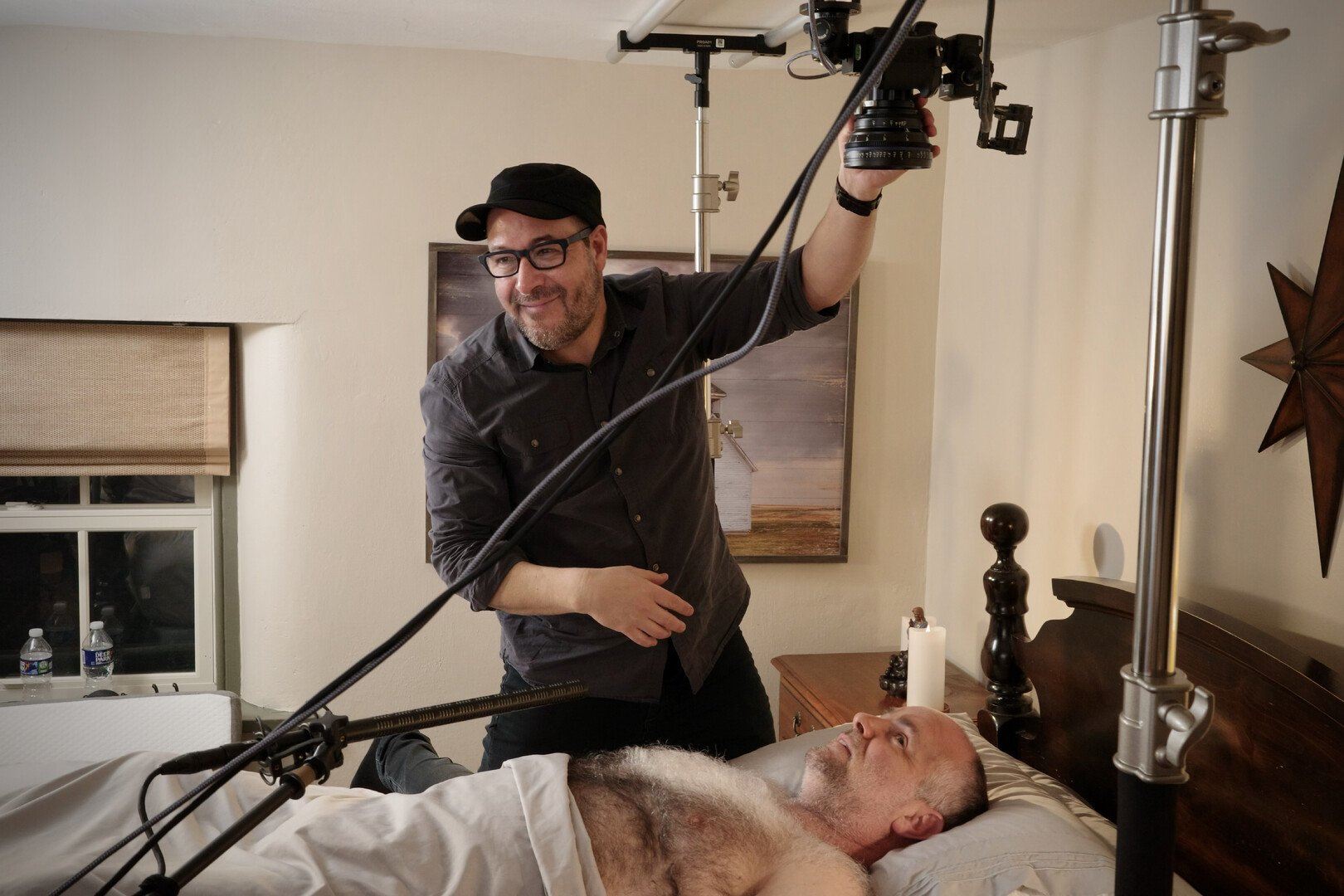
Well, who knows? We sure don’t have all the answers. But one thing’s for sure—what happens in the final minutes of this short is anything but predictable. Just when you think you’ve got it all figured out, boom, the film pulls the rug right out from under you.
And honestly? That’s half the fun. It keeps you on your toes and leaves you with plenty to think about—whether you’re laughing, questioning life, or just wondering if you should finally forgive your neighbor for borrowing your lawnmower and never returning it.
In his words, the film is “a black comedy with twisted sensibilities,” and it was designed to explore the messy, uncomfortable space between life and death, sin and absolution, using humor as a lens to examine weighty themes. What stands out is the balance Frey strikes—comedic yet contemplative, shocking yet measured.
Frey’s inspirations go beyond the comedic realm; he draws on the reflective imagery of Ingmar Bergman’s Wild Strawberries to underscore themes of mortality and introspection, while also channeling the haunting, delicate atmosphere of artist Andrew Wyeth. With its black-and-white cinematography, Viaticum visually mirrors the moral grayness of its subject matter, creating a sense of uncertainty and complexity.
What stands out
Adding another layer of brilliance to the film is the score, inspired by organ church music, which is nothing short of memorable. It’s perfectly pitched—never overwhelming, yet always enhancing the mood and tone of the scenes. The music subtly underscores the film's emotional beats, heightening both the comedic moments and the more introspective ones, making the overall experience feel even more immersive.
The actors do an excellent job of conveying the film’s comedic essence.
Additionally, the director's approach to cinematography and editing—describing it as “disciplined and methodical to mirror the process of last rites”—really adds an extra layer to the film’s mission.
Derek Frey's direction is a delightful dance between whimsy and wisdom, using the film's monochrome palette to highlight the intricate web of human morality. It’s a blend of lightheartedness and depth, where even the most serious questions about life, death, and forgiveness are explored with a wink and a smile. Who wouldn’t want to see more films that approach religion with this kind of playful yet thoughtful tone?
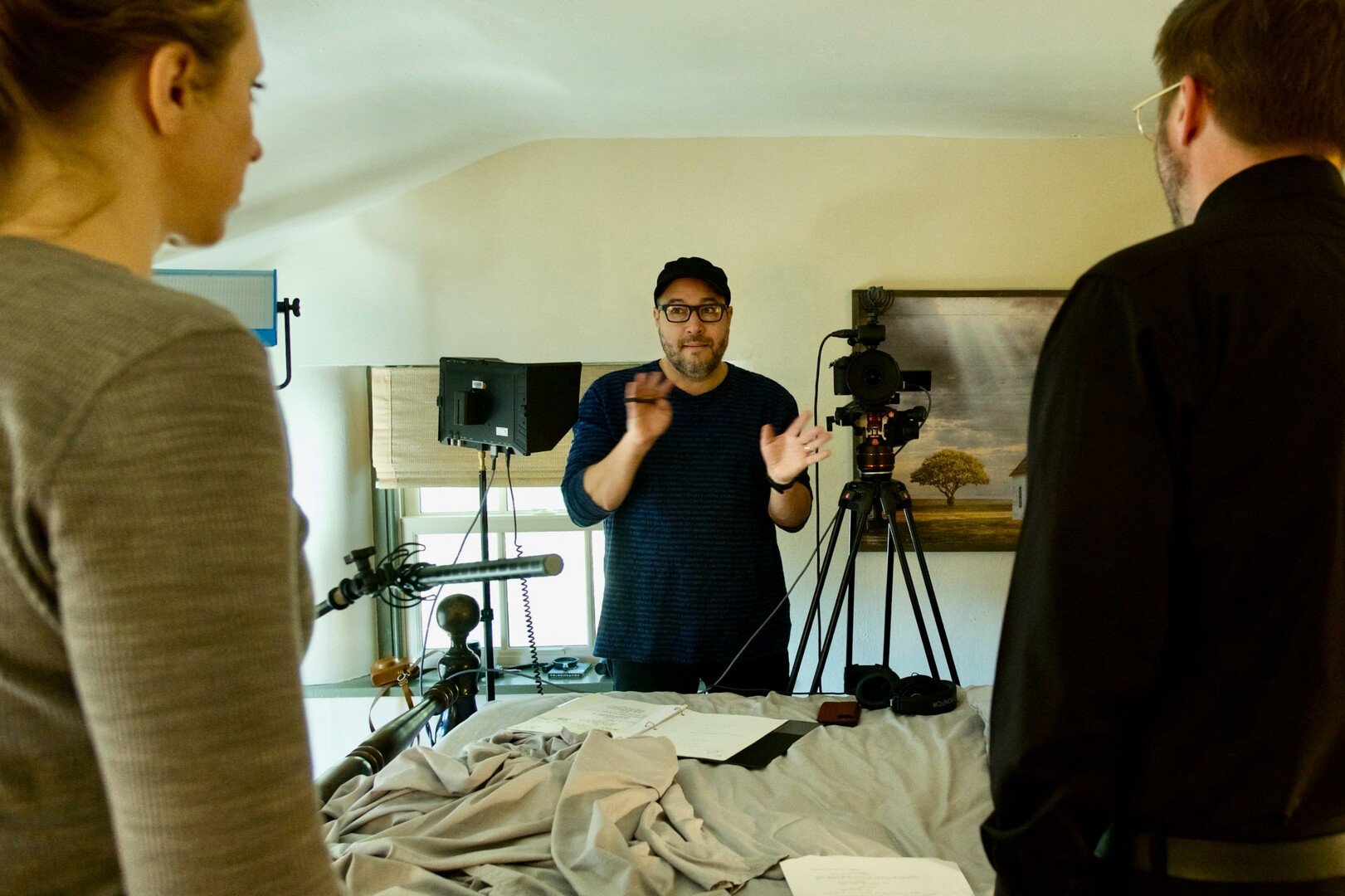
Whether you’ve been on the giving or receiving end of forgiveness, Viaticum reminds us that when life nears its final chapter, the lines between right and wrong, and absolution and consequence, often blur in ways we never expect.
“Don’t worry about the world coming to an end today. It is already tomorrow in Australia.”
Discover more reviews:
“Chrysalis”
A romance sapphic story set in Istanbul, Turkey. A short production between New York (USA) and Turkey.
“Nu Metal Will Never Die”
An aspiring nu-metal band practices for their first show on New Year's Eve, 2000. Derek, their overzealous frontman, is desperate to break through and leave his hometown.



